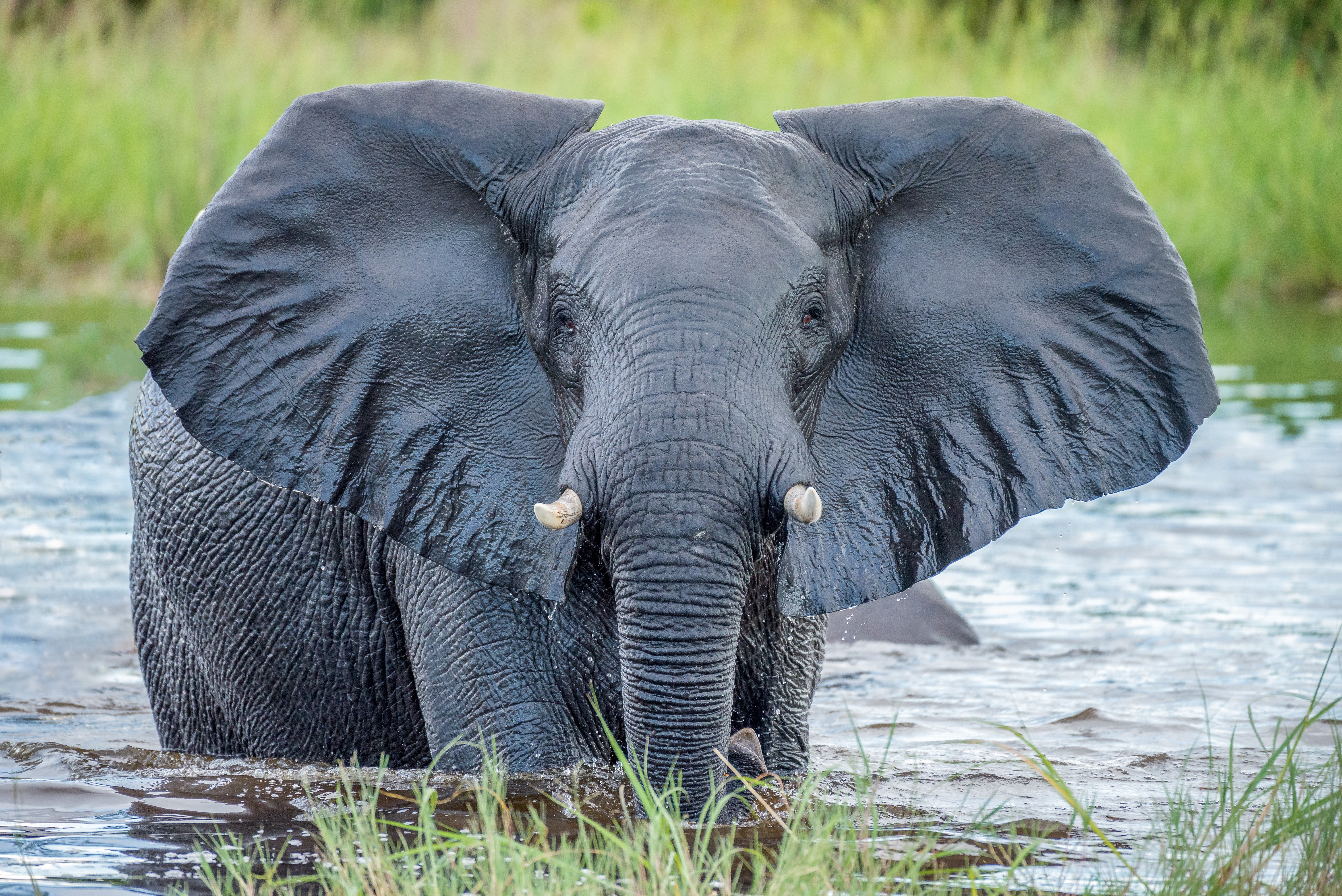Community conservancies help mitigate climate change impacts
Climate-smart community projects in Botswana reduce threats to farming, food security and tourism

By Keletso Thobega for Botswana Guardian
Botswana needs to do more to mitigate the impacts of climate change on its staple crops, and also protect its flora and fauna, and natural ecosystems.
The United Nations (UN) Intergovernmental Panel on Climate Change Working Group II report, dubbed Climate Change 2022: Impacts, Adaptation and Vulnerability, released in March 2022, indicates that sub-Saharan Africa has experienced reduced maize and wheat yields due to climate change, and that climate change has reduced agricultural productivity by more than a third since 1961.
The report emphasises that climate change is projected to push 39 million Africans into extreme poverty by 2030, under a baseline of delayed and non-inclusive economic growth – with food prices acting as the dominant channel of impact.
It indicates that global warming above 2 degrees will result in yield reductions for staple crops across Africa, and that future warming will negatively affect food systems by shortening growing seasons and increasing water stress.
Conservation agriculture is the way to go for Botswana farmers, if they are to mitigate climate change, says Puisano Ramosabatha, a farmer based in Molepolole. Ramosabatha, who studied Agriculture Science and Economics at Botswana University of Agriculture and Natural Resources (BUAN).
He says that farming methods such as crop rotation, minimum soil disturbance and permanent soil cover could help to mitigate unfavourable climate conditions..
Climate change is affecting farming yields and farmers but wildlife too; and has recorded negative impacts on natural landscapes, tourism, and increases the potential for wildlife crime to rise.
The expansion of woody plants into grasslands and savannas, linked to increased CO2, has reduced grazing land while invasive grasses in semi-arid land increased the risk of fire, the report found.
It reiterated that for livestock animals, there is decreased fodder availability as woody plants encroach on grazing lands, adding that reduced grazing land and water has also contributed to animal starvation. It indicates that this is a knock on effect to ecotourism because it’s difficult to see animals through vegetation, and that climate change and increased temperatures affect tourism due to reduced animal mobility.
Mogadi Masedi, Director and Project Coordinator of Habu Elephant Development Trust (HEDT), said many communities in northwest Botswana have felt the impacts of climate change, which has not only threatened livelihoods but also the protection of natural resources and wildlife.
Habu is situated in Ngamiland, between Shakawe and the Okavango Delta, Botswana’s biggest tourism area.
Masedi explained that HEDT was established to devise sustainable means to avert the negative impacts of climate change and ensure that sustainable development continues. The rainfalls have recharged groundwater systems, and they are taking this opportunity to utilise the groundwater reserves.
Since they started the project three years ago, they have drilled six boreholes. The boreholes were sponsored by the National Environment Fund.
“One borehole is for wildlife, another for a youth vegetable garden and the others are used for farmers’ cattle. We also came up with a grazing management system, through which they use the means of a devised system of rotational grazing and production of fodder, by cutting the encroached bush into chippers to produce animal feed.”
“At the heart of our operations is to protect ecosystems of both animals and people living in Okavango areas, and engender an understanding of the value of sustainable environmental management within the Habu area community. We also wanted to generate community owned and operated ventures that take advantage of available wildlife based industries focused on sustainable natural resource utilisation.”
Masedi said their first project started in 2017, securing two million Pula (£130,000) from the Paul Allen Foundation to establish a Habu community drinking water development. In 2018, they were approved for wildlife and cattle water development and were awarded a 2.5 million Pula (£163,000) grant. They have also established three boreholes, and partnered with Botswana Predator Conservation Trust and secured an additional three million Pula (£195,000) in funding.
He further said that some of the achievements registered since spearheading this initiative include increasing the prevalence of wildlife, under the wildlife management area; recovery of government trophy (tusks), herding for health, as well as reduction in poaching and incidents of human-wildlife conflict.
Masedi said the Sustainable wildlife management project initiative by the Government in collaboration with the Food and Agriculture (FAO) agency, and funded by the French
Development agency, supports community conservancies, and the implementation of conservation activities such as anti-poaching, wildlife monitoring, grassland management and livestock husbandry.
“The project utilises a model of community conservancy, that integrates wildlife, livestock and rangeland management, in order to reconcile the challenges of food security, biodiversity, and wildlife conservation through promoting sustainable and legal exploitation of animals resilient to hunting, promote sustainable hunting and fostering conservancies’ development,” he said.
FAO country representative in Botswana, Dr. Rene Czudek, said that FAO is currently spearheading a Sustainable Wildlife Management Programme that promotes the development of a network of conservancies to improve ecological connectivity and socio-economic sustainability in the Kavango Zambezi landscape.
“The model is an innovative approach and it builds on the community-based resource management programme. We have also introduced several initiatives which are undertaken to redirect the flows of socio-economic benefits to local communities, while simultaneously benefitting conservation by reducing unsuitable hunting for wild meat, and mitigating human-wildlife conflict.”
This article is reproduced here as part of the African Conservation Journalism Programme, funded in Angola, Botswana, Mozambique, and Zimbabwe by USAID’s VukaNow: Activity. Implemented by the international conservation organisation Space for Giants, it aims to expand the reach of conservation and environmental journalism in Africa, and bring more African voices into the international conservation debate. Read the original story here.
Join our commenting forum
Join thought-provoking conversations, follow other Independent readers and see their replies
Comments
Bookmark popover
Removed from bookmarks